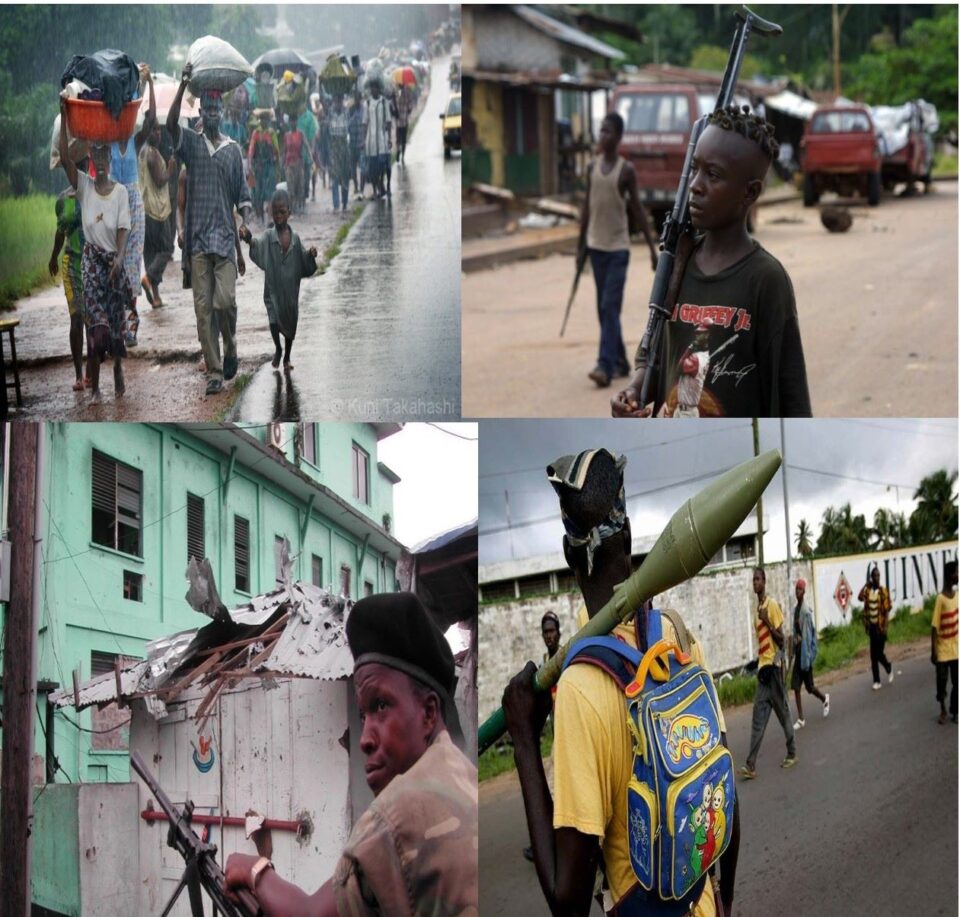By Kelvin Gonlah, an emerging Human Rights Activist
Amidst a civil crisis, there is a high level of distinctions among tribal people which cannot easily be resolved instantaneously. Rather, it needs the contributions of those who were implicated (perpetrators) to come to a resolution point and a common ground and seek remedies to that particular problem.
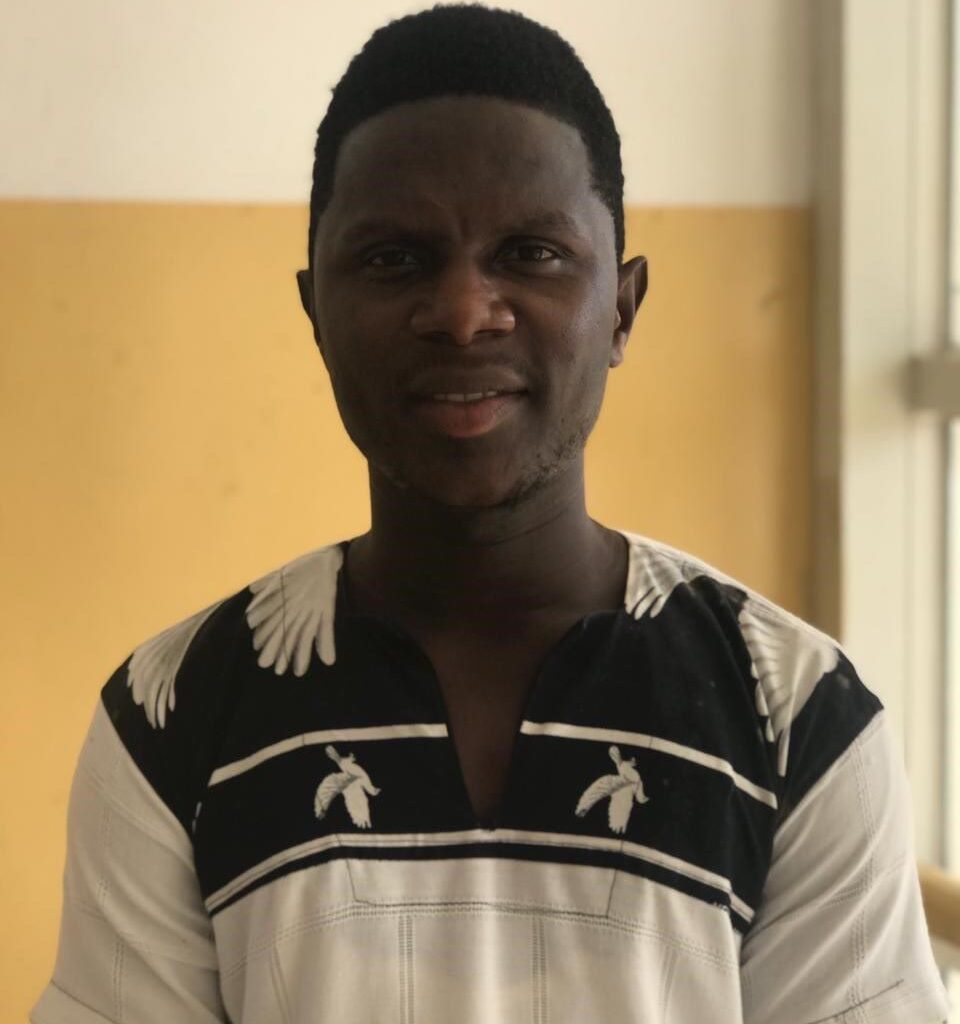
PHOTO: The Writer
Liberia’s senseless and insensitive civil conflict which broke out from 1989-1990 and 1999-2003, did not bear constructive fruit in Liberia, rather it left many in destitution and victimized after the war. According to United Nations estimate, about 250,000 lives were destroyed and it caused 800 hundred vulnerable people to become refugees as well as displaced, 700,000 thousand more across the country’s borders.
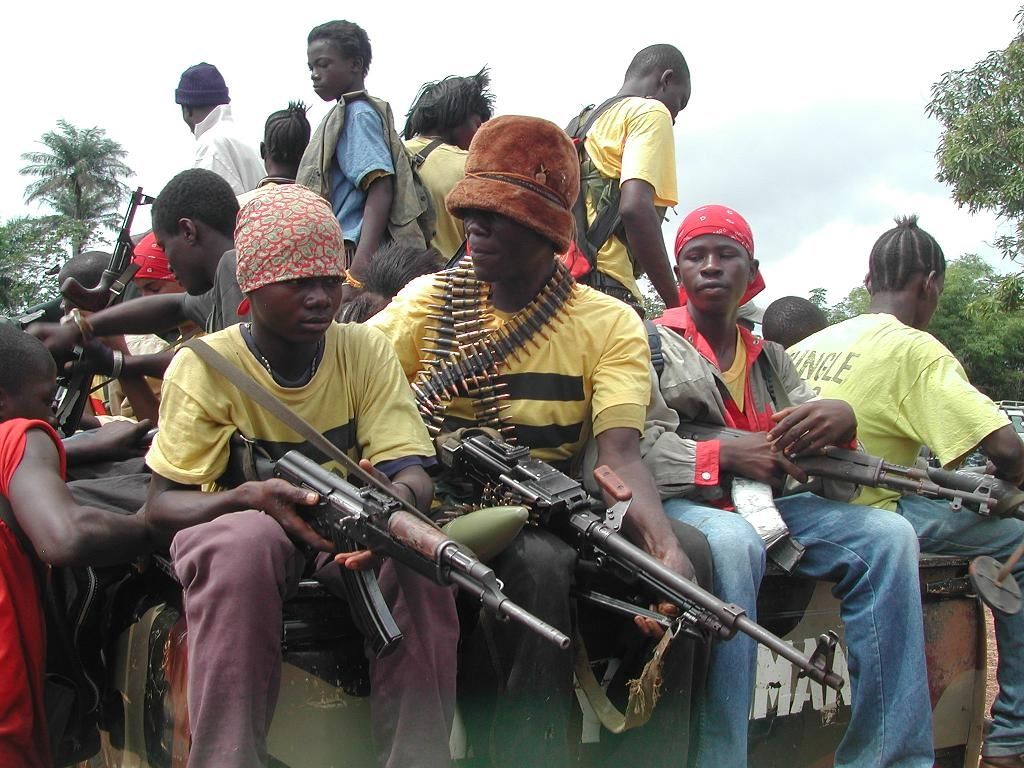
According to the TRC report, these are the Significant Violator Groups of the Liberian 14-year Civil War.
¡.National Patriotic Front of Liberia (NPFL)
¡¡.Liberians United for Reconciliation and Democracy (LURD)
iii. Liberian Peace Council (LPC)
iv. Militia
v. Movement for Democracy in Liberia (MODEL)
vi. United Liberation Movement (ULIMO)
vii.Armed Forces of Liberia (AFL)
viii. Unknown
ix. United Liberation Movement-K (ULIMO K)
x. Independent National Patriotic Front of Liberia (INPFL)
xi. United Liberation Movement-J (ULIMO J)
xii. Anti-Terrorist Unity (ATU)
Less Significant Violator Groups
i. Vigilantes
ii. Lofa Defense Force (LDF)
iii. Liberian National Police
iv. Special Operation Division of the Liberian National Police (SOD)
v. Revolutionary United Front (RUF)
vi. Special Anti-Terrorist Unit (SATU)
vii. Special Security Unit (SSU)
viii. Special Security Service (SSS)
ix. National Security Agency (NSA)
x. National Bureau of Investigation (NBI)
xi. Criminal Investment Division (CID)
xii. Rapid Response Unit (RRU)
…Key actors and events
The Liberian Civil War went on for one decade and a half (14 years) which reached its final apogee of violent violations, rape, forced labor, torture, enslavement, murder, sexual violations, sexual slavery, forced prostitution, massacre, extortion, killing forced recruitment, assault abduction, destruction of property, detention, and many other which was led by leaders of warring factions Charles G. Taylor (NPFL), Prince Y. Johnson (INPFL), Roosevelt Johnson* (ULIMO and ULIMO-J), Alhaji G.V Kromah (ULIMO and ULIMO-K), George Boley (LPC), Thomas Yaya Nimely (MODEL), Sekou Damante Konneh (LURD) and Francois Massaquoi* (LDF). They brought the country to its instability point which stagnated the country’s economy from progressing. During that time, Liberians fought vehemently and they destroyed properties worth millions of dollars, wide range of atrocities were committed.
What caused the Liberian Civil War?
There were so many factors that engendered the Liberian Civil War. The coup of 1980, the failed coup of 1985, the 1979 rice riot, and other tribal conflicts stimulated the war. All those mounting pressures accumulated to the Civil unrested war which occurred 14 years ago.
The rudiment of the war was triggered by unbearable factors; so it gave other Liberians who felt insecure and gave them the audacity to egress to exiles for refuge.
Before the inter-tribal war, the Gio and Mano on one hand, and Krahn on the other hand were living peacefully together with a special relationship, but skirmishes broke out among them which brought discrepancies between these tribes and ruined the relations that coexisted among them for decades. One of the earliest wars was fought between the Gio state of Srorlay and a neighboring Krahn state. The Mano state Duo fought in solidarity with the Gio state which enabled the Gio to win the war.
In the wake of it all, a rebel group was founded under an umbrella unit called, the National Patriotic Front of Liberia (NPFL) which was led by former President Charles G. Taylor and Prince Y. Johnson, who was known as ringleaders for committing egregious violations and coercive schemed that lured men, women, and children in Liberia, now senator of Nimba County, founded the rebel group to liberate Nimbians from the Krahn state. But again, it was due to power struggle.
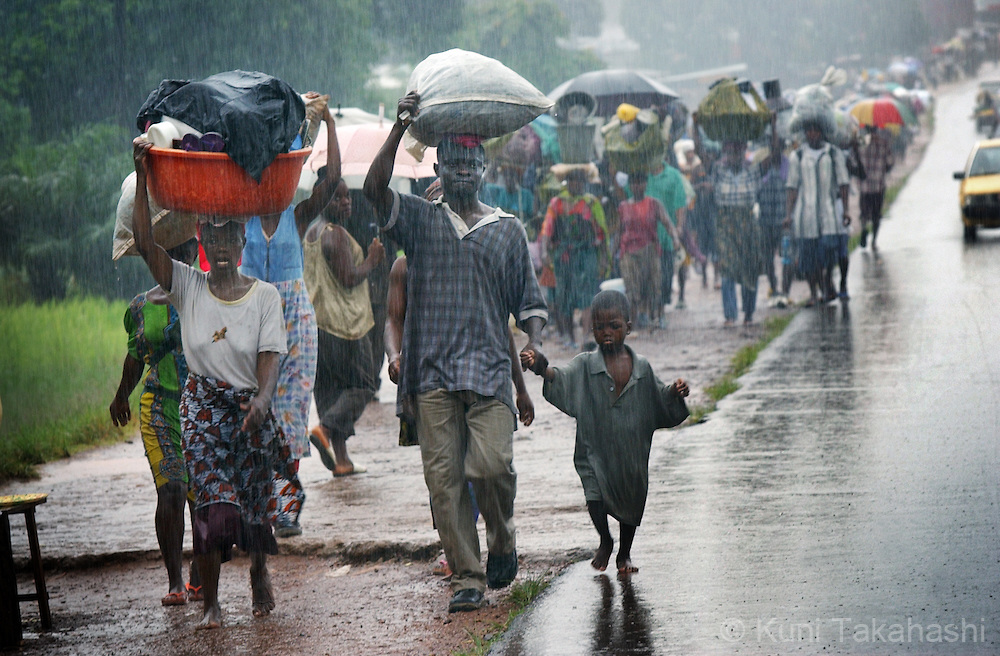
Before the inter-tribal war, there was already a Socio-political disparity between Settlers and Native Liberians in 1822 which brought about ‘A Class within a Class System’. This system brought about misconceptions among the settlers and the native Liberians.
he tribalistic war, which mustered the courage up to 2003, has led to thousands of homes lost and hopelessness. And it has been a long stunting conflict among the three tribes in Liberia. This conflict lasted until the 2003 war which crumbled many Liberians to flee to exiles for rescue. After all the heated conflicts which evacuated many Liberians to other countries, they decided to have a peaceful reconciliation in Liberia as a means of keeping and maintaining the fragile peace among them.
According to the Gross Human Rights Violations Definitions:
‛Murder’‚
The perpetrator purposely or knowingly caused the death of another
a human being or caused the death of another human being under
circumstances manifesting extreme indifference to the value of human
life; the perpetrator killed one or more persons.
‛Extermination’‚
The perpetrator killed one or more persons, including by the
intentional infliction of conditions of life, inter alia the deprivation of
access to food and medicine, calculated to bring about the destruction
of part of a population. The conduct constituted or took place as part
of, a mass killing of members of a civilian population.
‛Enslavement‚
The perpetrator exercised any or all of the powers attached to the
right of ownership over one or more persons, such as by purchasing,
selling, lending, or bartering such a person or persons, or by imposing
on them a similar deprivation of liberty, in particular women and
children.
‘Torture‛
The perpetrator intentionally inflicted severe physical or mental pain
or suffering upon one or more persons. Such person or persons were
in the custody or under the control of the perpetrator. Such pain or
suffering did not arise only from and was not inherent in, or
incidental to, lawful sanctions. In the context of IHRL, it is understood
that no specific purpose need be proved for this crime as distinct from
torture as a ‚war crime‛.
‘Rape‛
The perpetrator invaded the body of a person by conduct resulting in
penetration, however slight, of any part of the body of the victim or of
the perpetrator with a sexual organ, or of the anal or genital opening
of the victim with any object or any other part of the body. The
the invasion was committed by force, or by the threat of force or coercion,
such as that caused by fear of violence, duress, detention,
psychological oppression or abuse of power, against such a person or
another person, or by taking advantage of a coercive environment, or
the invasion was committed against a person incapable of giving
genuine consent. The concept of ‛invasion‛ is intended to be broad
enough to be gender-neutral. It is understood that a person may be
incapable of giving genuine consent if affected by natural, induced or
age-related incapacity.
‘Sexual Slavery‛
The perpetrator exercised any or all of the powers attached to the
right of ownership over one or more persons, such as by purchasing,
selling, lending, or bartering such a person or persons, or by imposing
on them a similar deprivation of liberty. The perpetrator caused such
person or persons to engage in one or more acts of a sexual nature.
‘Enforced Prostitution,‛
The perpetrator caused one or more persons to engage in one or more
acts of a sexual nature by force, or by the threat of force or coercion, such
as that caused by fear of violence, duress, detention, psychological
oppression or abuse of power, against such person or persons or
another person, or by taking advantage of a coercive environment or
such person’s or persons’ incapacity to give genuine consent; and the
perpetrator or another person obtained or expected to obtain
pecuniary or another advantage in exchange for or in connection with
the acts of a sexual nature. It is understood that a person may be
incapable of giving genuine consent if affected by natural, induced or
age-related incapacity.
‘Enforced Sterilization‛
The perpetrator deprived one or more persons of biological
reproductive capacity. The conduct was neither justified by the
medical or hospital treatment of the person or persons concerned nor
carried out with their genuine consent. The deprivation is not
intended to include birth-control measures which have a non-permanent effect in practice. It is understood that ‘genuine consent’
does not include consent obtained through deception. It is understood
that a person may be incapable of giving genuine consent if affected
by natural, induced, or age-related incapacity.
‘Sexual Violence’,
The perpetrator committed an act of a sexual nature against one or
more persons or caused such person or persons to engage in an act of
a sexual nature by force, or by the threat of force or coercion, such as that
caused by fear of violence, duress, detention, psychological
oppression or abuse of power, against such person or persons or
another person, or by taking advantage of a coercive environment or
such person’s or persons’ incapacity to give genuine consent. Such
conduct was of gravity comparable to the other offenses in this section. The perpetrator was aware of the factual circumstances that
established the gravity of the conduct.
Who should be prosecuted for those egregious violations against the Liberian posterity?
*According to the TRC report issued in 2008 and published by the Hot Pepper Newspaper on July 14, 2021, stated that Senator Prince Johnson of Nimba County committed the killing, extortion, massacre, torture, assault, abduction, forced labor, forced recruitment, rape, and destruction of property. The International Human Rights law, Article 5 states that No one has the right to torture you.
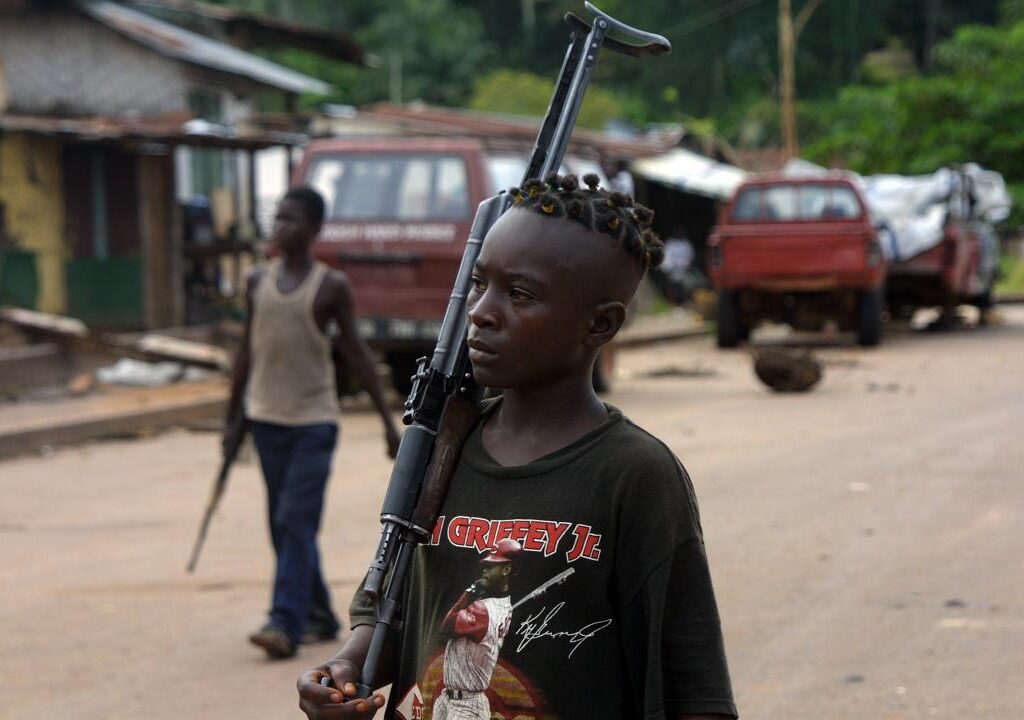
No one shall be subjected to torture or cruel, inhuman, or degrading treatment or punishment.
*Released from the TRC report says Senator Jonathan Banney committed torture;
*(NPFL Marine) Gonkarnue committed torture and detention;
*Roland Duo committed murder, torture and abduction and
*Gen. Ofori Dish, alias Iron Jacket
committed force labor.
*Adolphus Dolo (Peanut Butter) committed murder
These faces of violence should be incarcerated for desecrating Liberia for the 14 wasted years of war.
The Truth and Reconciliation Commission (TRC) was established in 2005 under a unit as a means of restoring peace and stability in Liberia.
In keeping with substantial evidence, the TRC pointed out a few individuals for economic sabotage during the Liberian civil crisis and they should be prosecuted for further investigation. They include George Haddad, Grace Minor, Emmanuel Shaw, Benjamin Yeaton, Ignatius Clay, and Roland Duo for squandering Liberians’ resources without being questioned.
The new government was headed by Charles. Grade Bryant, Chairman of the National Transitional Government of Liberia, (NTGL) 2003-2004, was mandated to implement the ceasefire agreement, making reconciliation a key priority and ensuring that the nation become peaceful and stable for everyone to live a harmonious life and restored Liberians’ dignity.
But again, another rigmarole began between the transitional government and the citizens of Liberia. Businessmen, students as well as market women were complaining about the slow pace of business in the new government. Civil servants also voice out that since the transitional government came to power, they have not gotten any pay to send their children to school.
In keeping with peace, victim in Liberians are now calling for the establishment of a war crimes court to be immediately established to prosecute warlords who left their country in the complete dark 14 years of war, by killing and sodomizing innocent Civilians without being questionable for the atrocities that were committed by them during the Liberian Civil War.
The Aftermath of Impunity in Liberia
Impunity encourages the Commission of acts that violate human rights in Liberia, impunity undermines the enjoyment of human rights in Liberia, and impunity allows people to not be punished for the crimes they committed in Liberia, during the 14-year Civil War.
According to conflict experts, impunity also undermines the rule of law and impunity sets the pace for insecurity for the perpetration of more crimes; impunity gives room and impunity undermines the good governance of a country which takes away victims’ and survivors’ justice. Thousands are dead but no prosecutions for perpetrators who committed gross human rights violations in Liberia.
“Impunity in Liberia has set the pace for human rights to not be upheld to a greater extent because we have had past issues of human rights violations which is the civil war, Liberians fought a back-to-back civil war; two different civil wars that more people don’t know about because the first civil war was from 1989 to 1997; we had an Elections where President Charles Taylor was elected as president from 1997 to 1999 another civil war broke up. ULIMO, LURD, and MODEL rebels emerged and that second war went as far back as 2003 we had three distinct civil wars,” said Mr. Adama K. Dempster, head of the Human Rights Advocacy Platform in Liberia.
The different levels of civil wars, there was a wide range of atrocities that were committed, is on record that the TRC was established, analyzed, and presented 250,000 thousand people died as a result of the civil war, gross human rights violations were committed, International human rights laws were violated; sexual offenses were committed, recruitment of Child Soldiers required conscription took place.
During a lecture series at the University of Liberia recently, the human rights advocate Mr. Adama K. Dempster also said: “The culture of impunity has created so much vacuum for us in Liberia, someone may say we are not making progress, yes, I may say we are making progress in Liberia but there are great areas that we need to make progress when it comes to how people change their mentalities and the way they do things when it comes to crimes and human rights in Liberia.”
A leading Liberian businessman who is now Nimba County District #7 Representative, Musa Hassan Bility has said: “In the past few years, we have made significant progress in war crimes cases around to try alleged perpetrators of Liberia’s wartime crimes.”
Two of the groups he praised were the Global Justice and Research Project and the secretariat for the establishment of a war crimes court in Liberia.
Liberians have had massive protests saying that there is a need for the government to establish a war crimes court in Liberia for those perpetrators who fought the war to give vivid explanations about the war that brought internal conflict among tribal people, the war has ended; the government and the International Community need to swiftly intervene and provide justice for every Liberians to be complacent.
According to some citizens, during the regime of Her Excellency Madam Ellen Johnson Sirleaf, the former Liberian President found it difficult to establish the war crimes court, and it has been a serious razzle-dazzle among government officials for the establishment of the war crimes court in Liberia.
“All eyes now turned to our National Legislatures,” said Aaron Weah at the search for common ground in Liberia and the secretariat for the establishment of a war crimes court in Liberia.
Citizens of Liberia are still anticipating that the war crimes court should be a cardinal issue in the growth and development of Liberia to settle disputes among tribesmen; Liberians should adopt the system of affability instead of being injurious to one another.
Other local and international organizations have joined hands together to seek justice for those who have been victimized during the Liberian Civil crisis. Some of these organizations include The Economic COMMUNITY of West African States (ECOWAS), and the United Nations (UN).
On September 12, 2019, President George Weah wrote a letter to the National Legislatures, “I… do hereby call on the National Legislatures to advise and provide guidance on all legislature and other necessary measures towards the implementation of the TRC report, including the establishment of the war crimes court in Liberia”.
After all the tremendous efforts made by ECOWAS and the United Nations and other local organizations, said some time ago that the government of Liberia still repudiates the establishment of a war crimes court to prosecute those warlords who ruin the country.
A few years ago, there was a serious dispute between Senator Prince Y. Johnson of Nimba County and Senator Abraham Darius Dillon of Montserrado County. Senator Prince Y. Johnson, former warlord of the (INPFL) on the other hand vehemently insisted that there will be no establishment of a war crimes court in Liberia, while Senator Dillon on one hand argued and agreed that there should be an establishment of a war crimes court in Liberia before 2022.
In the quest for peace, victims and survivors of Liberia’s 14 years of Civil War are persevering and showing great ‘aplomb and glee’ and their eyes are still geared towards the war crimes court to come and seek justice for destitute Liberians, who were victimized and sodomized by triggermen during the civil crisis.
Therefore, Justice for the 250,000 lives lost must be given and perpetrators of the war crimes and crimes against humanity must be made to account, but not exempted.

